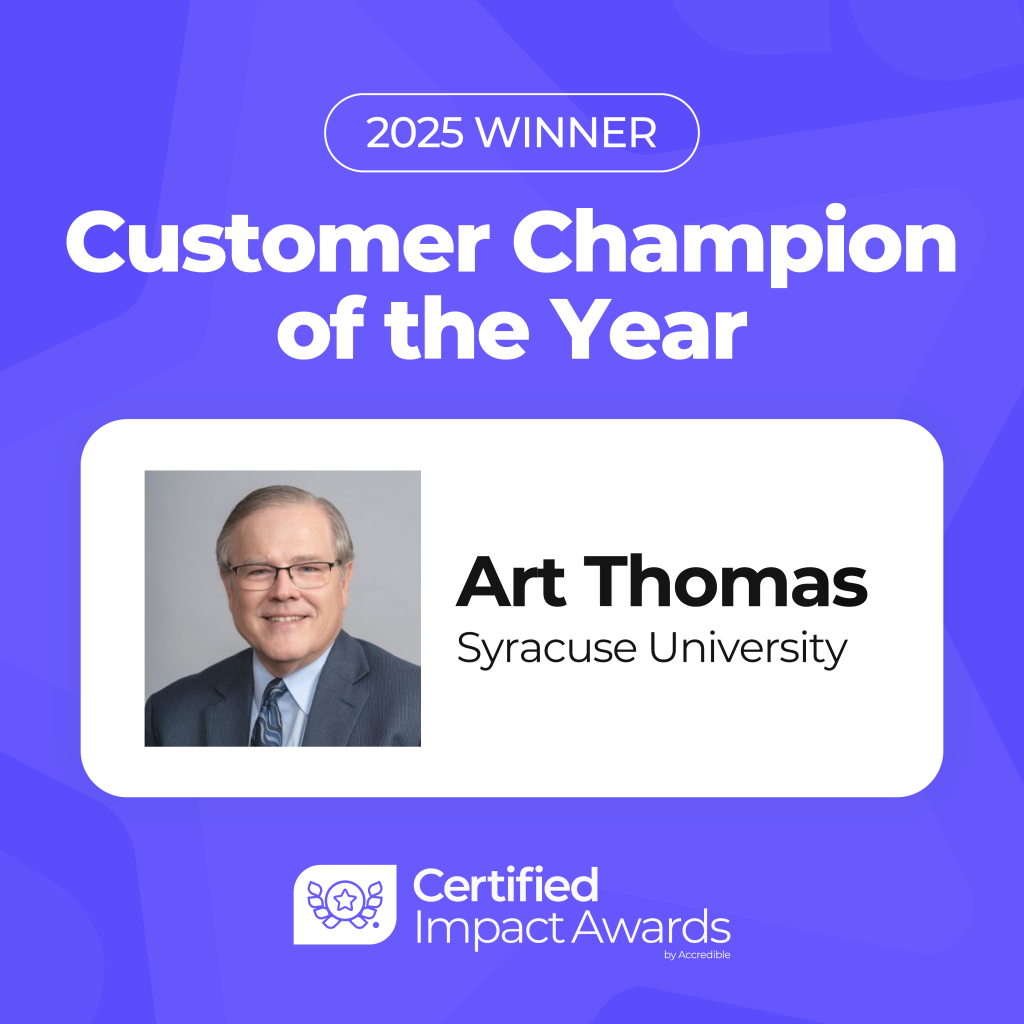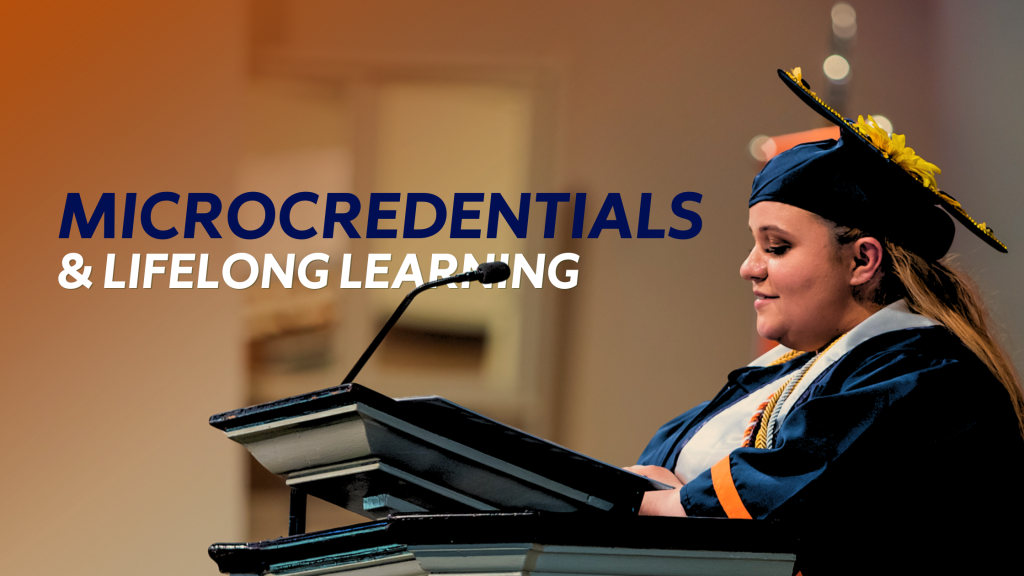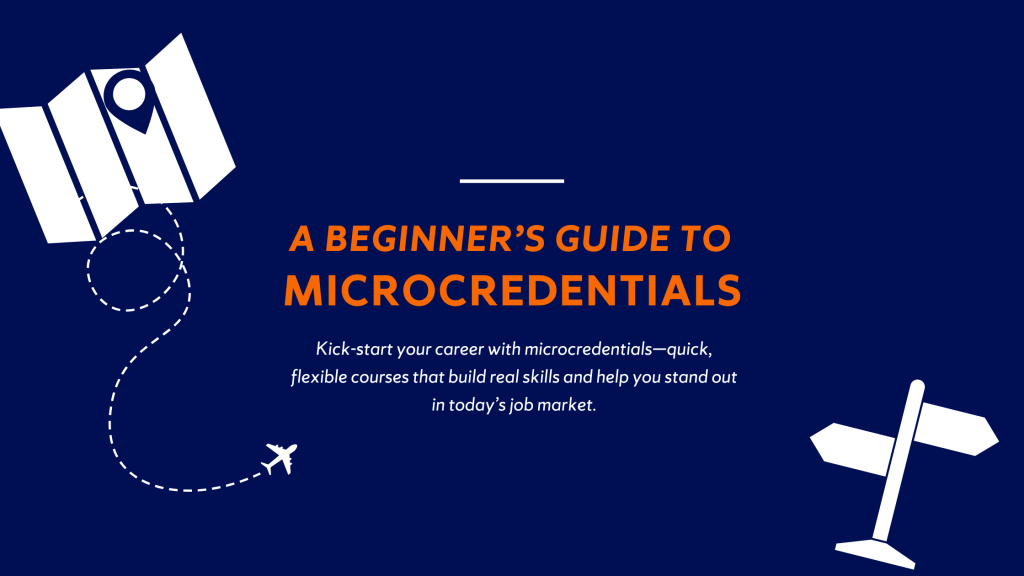
Arthur Thomas, Executive Director of Microcredentials has been named a winner in the Certified Impact Awards 2025, presented by Accredible, the world’s leading digital badging platform. Thomas received top honors in the Customer Champion of the Year category, which recognizes an individual who has gone above and beyond to champion Accredible through public advocacy, peer support, platform feedback, and community participation.
The Certified Impact Awards 2025 celebrate credentialing programs, teams, and leaders shaping the future of learning and work. Winners were selected from more than 175 nominations across ten categories through a rigorous evaluation of clarity, relevance, and demonstrated impact — spanning operational transformation, credentialing innovation, learner outcomes, and workforce results.
“Through the continued growth and impact of our programs, the College of Professional Studies has strengthened its ability to support the evolving needs of Syracuse University’s academic and administrative units,” said Arthur Thomas. “Our partnership with Accredible has been instrumental in this progress, enabling us to deliver innovative credentialing solutions that enhance engagement, expand professional development opportunities, and promote career success across our diverse participant communities.”
By working in true collaboration with Accredible, the College of Professional Studies has not only advanced their own initiatives but has also contributed to shaping the current and future direction of digital credentialing on an international scale.
“The Certified Impact Awards shine a spotlight on the teams who are building meaningful, learner-first credentialing programs and proving what digital recognition can achieve,” said Dan Theckston, Chief Customer Officer at Accredible. “This year’s winners aren’t just issuing credentials. They’re using them to drive mobility, spark innovation, and create real-world value for learners and industries alike.” To explore all Certified Impact Awards 2025 winners and learn more, visit here.
About The College of Professional Studies
Syracuse University College of Professional Studies innovates future-ready programs in flexible formats, so learners and leaders can advance their education and careers beyond what they imagined possible. From bachelor’s and master’s degrees to executive education, certificates and more, our credit and noncredit programs empower students to pursue their passions and purpose on their terms and timeline.
About Accredible
Accredible is the world’s leading digital credential platform, enabling education and training leaders to increase learner engagement and drive program growth. Over 2,300 organizations, including Google, IAPP, McGraw Hill, Rutgers, Skillsoft, and the University of Cambridge, rely on Accredible to manage and measure everything from issuing digital certificates and badges to visualizing learning pathways to spotlighting certified learners. Founded in 2013, Accredible has helped issue and verify over 170 million career-advancing credentials. To learn more, visit accredible.com.




